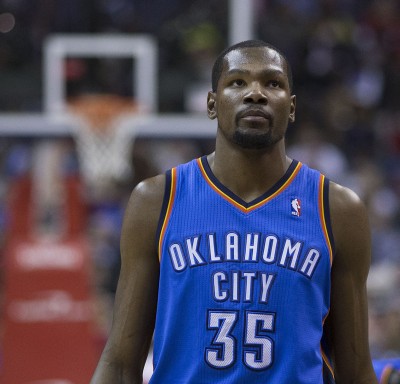
The college basketball world was stunned Monday night as Villanova University’s Kris Jenkins hit a championship-winning 3-pointer as time expired to propel the Wildcats to their first national title since their miraculous 1985 victory over the Georgetown University.
The moment was great one for collegiate athletics, but earlier in the day, a different kind of moment exemplified a giant issue in college basketball. Duke University freshman Brandon Ingram declared for the NBA Draft, continuing the trend of high-profile players forgoing a college education in favor of making big money in the NBA.
Ingram, a five-star recruit out of Kinston High School in North Carolina, averaged 17.3 points and 6.8 rebounds a game for the Blue Devils. However, he chose to depart from a top-of-the-line athletic program and academic institution. As the projected No. 1 pick, he’ll likely join former Blue Devils one-and-dones Jahlil Okafor, Justise Winslow and Tyus Jones.
Now, I understand the draw of professional basketball. These athletes have worked hard and feel that they should try to make the most money they can while in the prime of their athletic careers. However, the decision to leave the NCAA at such a young age undermines the entirety of collegiate athletics. Something preached constantly across the nation is the term “student-athlete.” First and foremost, these players are at college to get an education. While scandals have shown the shortcomings of that goal — most recently with the University of North Carolina Tar Heels — these institutions and the NCAA as a whole have a duty to ensure these students, and their parents, that receiving a world-class education is everyone’s first goal.
The onus falls on the NBA and the schools within the NCAA to keep players in school for longer. The NFL requires players to be out of high school for at least three years. Roger Goodell and company are essentially forcing the league’s future players to go to college before entering the big leagues. While Adam Silver and the NBA league office are mainly concerned with money and their on-court product, they too have an obligation to ensure the full development of their players.
While the one-and-done approach has worked for Kyrie Irving and Derrick Rose, players like Greg Oden exemplify the dangers of such a decision. Oden, as many know, played for The Ohio State University in the 2006-07 season and averaged 15.7 points and 9.6 total rebounds. In the 2007 NBA Draft, Oden went first overall to the Portland Trailblazers and promptly washed out of the league due to reoccurring knee injuries. While many argue that Oden made the right decision because he made around $24 million dollars in the NBA, he is now out of the league without an education.
The NCAA is one of the strictest organizations when it comes to its student-athletes. Many criticize the governing body for being too rigid on what players can and cannot do.
Yet, the NCAA comes up short when it tries to ensure that student-athletes stay true to the student part of their name. The NCAA has no rule stating how long a player must stay in college to become draft eligible. While instituting a clause that requires players to stay in college for a set period of time may lead to a pushback from proponents of sovereignty, a rule, if worded correctly, would solidify education as the main goal of collegiate athletics.
I do not know the solution to eliminating the trend of one-and-dones in college basketball. Maybe the answer lies with the NBA, maybe it lies with the NCAA, but what is certain is that this defection of talent is a major issue plaguing college sports. Head coaches such as John Calipari of the University of Kentucky have advocated their support of players’ decisions to go pro no matter how long they have been at the university. Contrarily, Mike Krzyzewski of Duke University has voiced his concerns about the loss of top-tier talent so early in a players’ careers’. No matter your stance on the matter, one thing is for certain — college basketball is suffering because of it.
With the game’s best players running off to the NBA, the NCAA is left deprived of the excellence that college football has. While March Madness amazes us seemingly every spring, imagine the possibilities if players were required to stay at their respective schools for at least three years. The product would grow exponentially, revenue for the NCAA would climb even more so than it already is and a greater number of student-athletes would receive an education. And that, my friends, is the ultimate goal of college.











